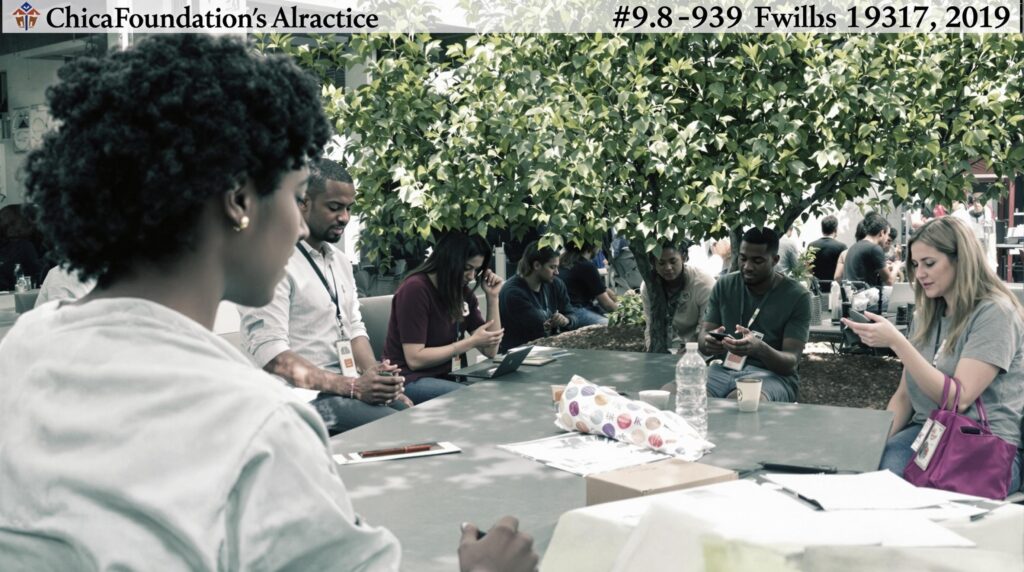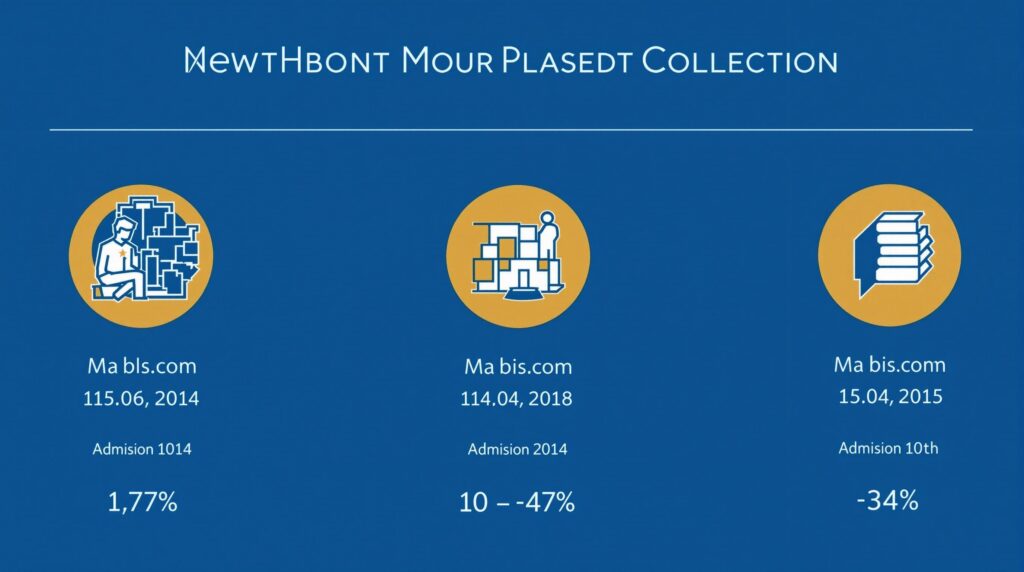Chicago stands as a beacon of philanthropic support for education and career advancement, with numerous foundations offering substantial funding opportunities to deserving individuals and organizations. These foundations in Chicago collectively distribute billions of dollars annually, creating pathways from early childhood education through career development that particularly benefit underserved communities.
Key Takeaways
- Chicago’s top foundations collectively invest billions in educational funding annually across various educational stages
- Many Chicago foundations focus on narrowing wealth gaps through targeted educational investments in Black and Latine communities
- Foundations like Polk Bros. and Field Foundation offer unrestricted funding options allowing greater flexibility for grantees
- Early childhood education receives significant financial backing from multiple Chicago foundations
- Many foundations provide specialized career development programs beyond traditional scholarships
Chicago Community Trust: Strategic Educational Equity Investments
The Chicago Community Trust stands at the forefront of tackling educational inequity through strategic financial investments. Its primary focus centers on narrowing the wealth gap for Black and Latine communities by creating educational pathways and economic opportunities. The Trust’s Transfer Innovation Impact Model (TIIM) program provides critical grants designed to improve bachelor’s degree completion rates for community college students transitioning to four-year institutions.
Beyond higher education, the Trust operates the Press Forward Chicago initiative, which supports journalism and media capacity-building efforts to strengthen civic engagement. The foundation’s partnership with MacArthur Foundation yielded $500,000 in 2023 to help organizations effectively comply with federal grants like the American Rescue Plan Act, maximizing their impact potential.
Grant amounts from Chicago Community Trust vary widely, ranging from modest $5,000 sponsorships to substantial multi-year commitments such as a $2.5 million education budgeting analytics pilot. This flexibility allows the foundation to support initiatives of various scales while maintaining focus on its core mission of educational equity.

Polk Bros. Foundation: Arts Education and Equitable Recovery
Polk Bros. Foundation has emerged as a champion for arts education while addressing COVID-19 educational disparities. In 2021 alone, the foundation allocated $1.325 million specifically to combat pandemic-related educational challenges. Their Arts Access and Learning program operates in partnership with Chicago Public Schools, integrating arts into standard curricula and providing specialized teacher training programs.
Notable funding initiatives include a $225,000 grant to Leading Educators for math acceleration programs and multi-year general operating grants totaling $6.7 million for vulnerable arts organizations. Looking ahead to 2025, Polk Bros. has committed $19.5 million to current grantees with a deliberate emphasis on unrestricted funding, allowing recipient organizations greater flexibility in addressing their most pressing needs.
This foundation’s approach represents a shift in philanthropic strategy that many national foundations have also adopted, recognizing that grantees often need operational freedom to achieve maximum impact with donated funds.
Field Foundation of Illinois: Developing Next-Generation Leaders
The Field Foundation distinguishes itself through programs designed to cultivate future community leaders. Their signature Field Fellowship offers a nine-month career development program specifically for graduate students interested in grantmaking and civic infrastructure projects. This hands-on experience provides participants with real-world philanthropy exposure while building their professional networks.
Another innovative initiative is the A Road Together (ART) Grant, which provides between $10,000 and $300,000 in general operating funds for small arts organizations committed to racial equity. The foundation also administers the Leaders for a New Chicago Award, recognizing individuals advancing justice in marginalized communities through their work.
The Field Foundation’s partnership with MacArthur Foundation has allowed it to expand its impact in underserved communities, creating a more robust network of support for educational and cultural advancement. This collaborative approach magnifies the effectiveness of both foundations’ resources.
MacArthur Foundation and Prince Charitable Trusts: Arts Education Ecosystem
The MacArthur Foundation, working through Prince Charitable Trusts, has invested $30 million since 2003 in Chicago’s mid-sized arts organizations. This long-term commitment has helped sustain vital cultural institutions that provide educational programming to diverse communities. The MacArthur Fund for Arts and Culture allocated $11.85 million over five years specifically to arts organizations with budgets under $2 million, ensuring smaller organizations receive proportional support.
Beyond operational funding, these foundations have dedicated $345,000 to leadership transition support in arts organizations, recognizing that institutional knowledge preservation is critical during leadership changes. Capacity-building initiatives for financial management receive additional support, with individual awards up to $20,000 helping organizations develop sustainable business models.
This comprehensive approach to arts education funding ensures Chicago’s cultural landscape remains vibrant and accessible to all communities, providing both educational opportunities and career pathways in creative fields.
Early Childhood Education Champions
Several major Chicago foundations have made early childhood education a funding priority. The Crown Family Philanthropies awarded $680,000 to the JCC Association for inclusive early childhood programming and family engagement initiatives. Since 2015, they’ve contributed over $1.3 million to the Sheva Center, which develops early childhood educators.
The McCormick Foundation’s Education Program allocated $6.19 million to early childhood initiatives, including a $200,000 grant to Loyola University for teacher development programs. These investments reflect research showing early education’s critical importance in establishing long-term academic and career success.
Meanwhile, the Grand Victoria Foundation has committed $2 million to their Early Childhood Initiative focused on infrastructure and system alignment. This funding helps create cohesive early learning environments across different program types, ensuring children receive consistent, high-quality educational experiences regardless of which programs they access.
Organizations interested in early childhood funding can find additional opportunities through teacher-focused education grants in Illinois that complement these foundation initiatives.
Coleman Foundation: Fueling Entrepreneurship Education
The Coleman Foundation has carved a unique niche in Chicago’s philanthropic landscape by focusing on entrepreneurship education. For 2025, they’ve announced grants up to $500,000 available for Chicago-based entrepreneurial ventures that meet their criteria. Their Entrepreneurship Impact Plan provides funding specifically for organizations that aid tech-based startups and work to reduce administrative barriers for small businesses.
Eligibility requirements for Coleman Foundation grants include annual revenues exceeding $250,000, with support restricted to nonprofits in the greater Chicago region. This local focus ensures resources remain concentrated within the community, maximizing economic and educational impact.
The foundation’s entrepreneurship education programs represent a valuable complement to traditional academic pathways, providing practical business skills that can lead directly to career opportunities or business ownership for participants.
Spencer Educational Foundation: Specialized Scholarships
The Spencer Educational Foundation offers highly targeted support for students pursuing careers in risk management and actuarial science. Since 1980, the foundation has awarded over $10.2 million in specialized educational scholarships, creating a pipeline of talent for these technical fields.
Undergraduate scholarship amounts range from $5,000 to $10,000, providing substantial financial relief for students in these rigorous programs. Part-time master’s students can receive up to $10,000 annually, while pre-dissertation Ph.D. candidates are eligible for $10,000 awards to support their research.
The foundation also extends support to professionals transitioning to academic careers in risk management, recognizing the importance of experienced practitioners entering teaching roles. This comprehensive approach ensures the field maintains both a strong professional workforce and qualified educators to train future generations.
For those interested in exploring a broader range of educational funding sources, national foundations providing educational grants can supplement these specialized opportunities.
How to Apply: Strategic Approaches for Securing Foundation Funding
Securing funding from Chicago foundations requires understanding their unique application cycles and priorities. Most foundations maintain specific application deadlines throughout the year, with many major foundations operating quarterly review cycles. Research each foundation’s website for exact submission dates and prepare materials well in advance.
When crafting proposals, align your project clearly with the foundation’s stated priorities. For example, if applying to the Field Foundation, emphasize racial equity components of your educational initiative. If targeting Crown Family Philanthropies, highlight early childhood education elements or teacher development aspects.
Common eligibility requirements across Chicago foundations include:
- 501(c)(3) nonprofit status or fiscal sponsorship
- Operation within the greater Chicago area
- Minimum organizational budget thresholds (typically $250,000+)
- Demonstrated commitment to diversity, equity and inclusion
- Clear measurement and evaluation plans
Most foundations provide detailed contact information for program officers who can answer specific questions. I recommend reaching out for clarification before submitting applications, as this personal connection can provide valuable insight into foundation priorities not explicitly stated in published guidelines.
Sources
Chicago Community Trust – Grant Opportunities
Chicago Community Trust – What We Fund
MacArthur Foundation – Chicago Community Trust Grantee
Polk Bros Foundation – Arts Access and Learning
Field Foundation – Fellowship Program
Victoria Foundation – NextGen Grantmakers Fund
Spencer Educational Foundation – Scholarships
Grand Victoria Foundation – What We Fund



